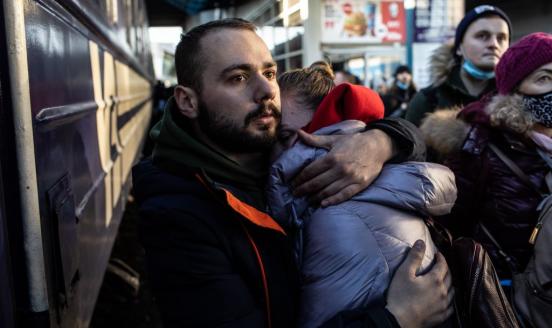Beyond border control, migrant integration policies must be revived
Border control and burden-sharing of refugees is just one aspect of immigration policies. Greater financial inclusion and the tailoring of regulations
Immigration evokes divergent emotions. Some people within the European Union have reacted to the arrival of approximately three million asylum seekers in the past three years by highlighting the EU’s responsibility for providing humanitarian assistance to refugees. Others have argued that, in fact, many asylum seekers did not risk their lives but are instead economic migrants who wish to use the current refugee inflow to gain easy entry to the EU.
Both views are valid. Humanitarian help is a core value of the EU – yet roughly half of all asylum applications have been rejected, suggesting that not all asylum seekers are refugees. A clear conclusion is that the EU should try to do more to address the root causes of immigration, such as conflicts, climate change, poverty and the lack of prospect in many developing countries. But it is easier said than done.
Opinion surveys show that European citizens overwhelmingly wish to see stricter border controls. Cooperation with neighbourhood countries and support for their refugee hosting facilities is crucial. Returning ineligible migrants to their home countries is rare due to difficulties, which must be overcome. EU financial support for countries most exposed to refugee inflows, and the relocation of refugees from overburdened countries, should be part of the solution. Countries resisting relocation for ideological and political reasons should pay a large enough solidarity fee, which is a much better option than conditioning European Structural Funds on participating in the relocation system. But all these potential changes are just one part of the story.
The other part is the way we deal with those humans who arrive in Europe. Even with best border control and neighbourhood policies, asylum seekers will continue to come to Europe. It is unacceptable that, in some cases, it takes a year to assess an asylum application. Such waiting times demoralise the persons involved and multiply the difficulties and costs for the hosting country.
A reason for, but also a consequence of, more adverse Italian public opinion towards immigration could be the unsatisfactory integration record.
Beyond refugees, it is often forgotten that many other people come to Europe to work, study or reunite family. In a typical year, about 1.2 million non-EU citizens enter our continent for non-refugee reasons, underlining that there are legal ways to come to Europe. In addition to those coming from outside the EU, about 1.4 million EU citizens move their residency to another EU country each year. The way we integrate these newcomers has crucial impacts on economies and societies. In fact, research shows that well integrated immigrants contribute to economic growth, create new jobs for natives and do not pose any burden on public finances.
It is not well known that support for intra-EU mobility has been increasing in recent years, reaching the point of two-thirds approval among the EU population. In Italy, such support is lower but nevertheless above 50%. Support across the EU for immigration from outside the bloc is lower at about 40% on average, while Italians’ support is lower again at one-third.
A reason for, but also a consequence of, more adverse Italian public opinion towards immigration could be the unsatisfactory integration record. The share of workers in the adult population is much lower for people with an immigrant background in Italy than for native Italians, and in fact the native Italians’ share also falls significantly short of the European average. Children with an immigration background achieve weaker results in their studies than native Italians, and the share of earlier school-leavers is also much higher.
The solution to this problem is not to ease regulation, but to tailor it to the specific needs of refugees
These problems call for increased efforts to integrate and educate immigrants. For recently arrived immigrants, the importance of language courses and the need to offer faster routes for recognising qualifications cannot be emphasised enough. High-quality early childhood education for immigrant children is crucial, which is found by the academic literature to be extremely important in offering better opportunities to children born in poor and disadvantaged families. Other trainings and support for university studies are key, too, as well as measures to limit spatial segregation, such as housing diversification.
An important aspect of integration is financial inclusion of refugees. In a financially advanced area like the European Union, it is essential to have access to a bank account and other basic financial services. But financial inclusion of refugees is made difficult by the otherwise necessary regulation to tackle money-laundering and terrorist-financing.
The solution to this problem is not to ease regulation, but to tailor it to the specific needs of refugees – for example, by creating a tiered system whereby a simple bank account allowing a low turnover could be opened under a simplified procedure. National financial supervisors should offer clear guidelines to banks on how to deal with refugees, something not yet done in roughly half of all EU countries, including Italy.
A new system of refugee identification would significantly improve their identification: we propose the creation of a European ID for asylum seekers and refugees, along with a pan-European registry that would be accessible online for relevant institutions. Such a system of identification would also allow for the monitoring of the movements of asylum seekers and refugees, and help to prevent multiple asylum applications.
Border control and burden-sharing of refugees is just one aspect of immigration policies. On top of this, a revival of integration policies is needed to benefit both native citizens and immigrants.



